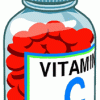Search Results
Showing results 141 to 160 of 276
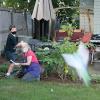
Stomp Rockets
Source Institutions
In this activity, learners will build a stomp-powered launcher to blast off paper rockets they design. Materials can be found at a local hardware store or you may already have them at home.
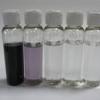
Exploring Size: Scented Solutions
Source Institutions
This is an activity in which learners will find that they can detect differences in concentration better with their nose (smelling) than with their eyes (seeing).

Water Treatment
Source Institutions
Water treatment on a large scale enables the supply of clean drinking water to communities.
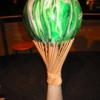
Trophy Triathlon
Source Institutions
In this activity, learners are challenged to design and construct a trophy for prize-winning sports equipment.
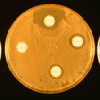
Chemical Methods of Control
Source Institutions
In this lab, learners evaluate the relative effectiveness of various chemical substances (i.e. garlic powder, bathroom cleaner, mouthwash, etc.) as antimicrobial agents.
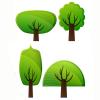
Give or Take?
Source Institutions
In this outdoor activity, learners work in pairs using their senses—especially touch—to learn more about individual trees.
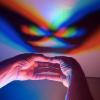
Colored Shadows
Source Institutions
In this optics activity, learners discover that not all shadows are black. Learners explore human color perception by using colored lights to make additive color mixtures.
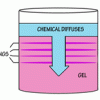
Liesegang Rings
Source Institutions
This display shows slow chemical reactions in colorful crystal formations known as Liesegang Rings. These reactions are similar to those forming the rings in agates.
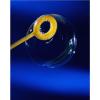
Using Bubbles to Explore Membranes
Source Institutions
In this activity, learners use bubbles to investigate the structure and unique properties of cell membranes. Bubbles serve as macroscopic models that mimic the cells' phospholipid bilayers.
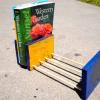
Bookshelf
Source Institutions
In this activity, learners use simple tools to build a bookshelf with a built-in bookend.
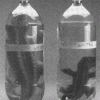
Crocodiles
Source Institutions
Learners observe and compare the sizes of three toy “growing” crocodiles made from water-absorbent polymers. One is it its original state, dry, hard, and about 10cm long.
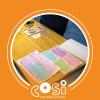
Watercolor
Source Institutions
In this activity, learners will use chemistry to create a night sky watercolor painting. They will experiment to learn the effects of mixing crayon, salt, and lemon juice with water color paints.
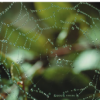
Stick to It: Adhesion II
Source Institutions
Water sticks to all kinds of things in nature — flowers, leaves, spider webs - and doesn't stick to others, such as a duck's back.

Exploring Forces: Gravity
Source Institutions
In this nanoscience activity, learners discover that it's easy to pour water out of a regular-sized cup, but not out of a miniature cup.
Parachute Design
Source Institutions
In this activity, learners design and build their own parachute using household materials with the goal of landing their passenger safely on a target.
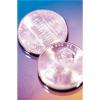
What's in a Penny?
Source Institutions
In this chemistry activity, learners use chemical reactions to observe the composition of an alloy.
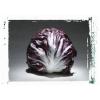
Cabbage Juice Indicator
Source Institutions
In this chemistry activity, learners make indicator solution from red cabbage. Then, learners test everyday foods and household substances using the cabbage juice indicator.
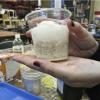
Hot & Cold
Source Institutions
In this activity, learners experiment with hydrogen peroxide, vinegar, yeast, and baking soda to produce hot and cold reactions. Use this activity to demonstrate exothermic and endothermic reactions.
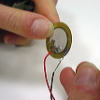
Electric Cup Guitar
Source Institutions
Make a one-string "guitar" by stringing a cup with some fishing line. You amplify the plucking of the string by placing a piezo contact microphone and mini battery powered amplifier inside the cup.

